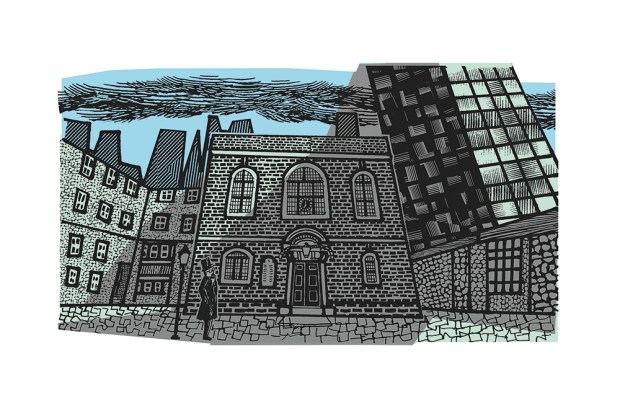‘Small friendly village book club is looking for three or four new members.’ I was infuriated to read this in our village newsletter, an alternative to the parish magazine. I had just been ‘cancelled’ by this ‘friendly’ club from featuring at one of their evenings. A text, sent by a hitherto pleasant woman who’d liked my last book, explained: ‘There are many hurt feelings in the village. We in the book group believe that your email, put on the parish council notice board, was hurtful and upsetting. So the feeling is that at the moment it would be better to postpone your visit.’
‘Hurt’ seems to be a current buzzword for those who don’t share others’ views. My email had simply corrected the newsletter’s misreporting of a parish council meeting, where I had taken notes. The chair, who’d spoken reasonably and politely, had had her words altered to portray her as an autocratic bully. There was nothing ‘hurtful’ or ‘upsetting’ in my highlighting this. It was she who could have claimed ‘hurt’. (The newsletter’s editor, incidentally, published some of my email in the next issue as a correction.)
Book clubs can be fraught places. Personality clashes are common. I resigned from one years ago, fed up with the arrogance of a member who, when I’d chosen a memoir by a man whose elderly father lost the tenanted farm that had been in his family for generations, declared: ‘It’s not so tragic. They moved to a bungalow.’ That member lived in a valuable penthouse flat. I clashed with him again over Kazuo Ishiguro’s superb and haunting Never Let Me Go. ‘It’s not meant to be a documentary about cloning!’ I’d shouted after his silly objections about Ishiguro not concentrating on cloning techniques.
Far more women than men join book clubs. I’ve noticed that the men there often feel they must compete with each other. At one of our meetings, the two men present locked horns over Henry James’s The Spoils of Poynton. The younger of the two had chosen it and the older, who was very well-read, stated he didn’t want to read about ‘privileged people’. Just before we went home he revealed he loved Proust.
Book clubs can seem to be more about one-upmanship — and one-upwomanship — than discussions about literature. Even a highbrow one I heard about, focusing only on Henry James, was derailed by two strong-minded women at loggerheads.
Some members resign. One friend said her book club was too much about drinks and nibbles. Others cling on. My friend Daniel seems to be in a sort of sadomasochistic relationship with his group. Each summer he comes on holiday full of irritated anecdotes. A self-satisfied member who hardly ever finishes a book said about Gone Girl: ‘I read the first ten pages then turned to the middle and read a few more.’ Daniel, who’d taught English literature for 40 years, lost his temper, yelling: ‘That’s NOT the way to read a book!’ One member inserts a religious element into all discussions. Another deliberately opposes every book Daniel suggests.
Like most writers, I have appeared in diverse venues to promote my books. I was invited to talk at a book club in Mallorca, where one expat said she couldn’t relate to my book as my mother’s upbringing had been too privileged. I felt least welcome in the oldest women’s club in America, which was founded in 1889. Having been promised I could stay the night, I was put up a few streets away and got lost. The person allocated to help with the film footage of postwar Germany did not materialise and the well-heeled female members seemed more interested in scoffing their three-course dinner than in buying paperbacks. I sold three. My other appearances in America were more of a success.
The book event I enjoyed most over here was at the Kilburn Library. It was organised by my ex-publisher friend Geraldine Cooke, as part of her campaign to keep libraries open. I sold out of books and everyone was enthusiastic. One woman, obsessed with Bletchley Park — where my mother had worked — even tried to follow me home. So perhaps it is just as well I was cancelled by our village book group; otherwise who knows what might have happened to me.
Got something to add? Join the discussion and comment below.
Get 10 issues for just $10
Subscribe to The Spectator Australia today for the next 10 magazine issues, plus full online access, for just $10.
You might disagree with half of it, but you’ll enjoy reading all of it. Try your first month for free, then just $2 a week for the remainder of your first year.














Comments
Don't miss out
Join the conversation with other Spectator Australia readers. Subscribe to leave a comment.
SUBSCRIBEAlready a subscriber? Log in